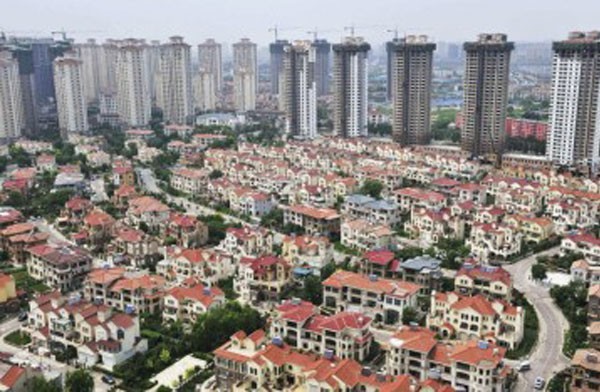Sunday's data from the National Bureau of Statistics shows that the pace of China's declining housing prices is slowing down.
The results were taken from an analysis of 70 of the nation's major cities, with the four first-tier cities--Shanghai, Beijing, Guangzhou and Shenzhen--registering as the only metropolises where average prices rose in the markets for both new and existing homes.
In December, lower prices were documented in 66 cities, down from 67 the previous month, while prices were flat in three. The cost of new and pre-owned houses in the 70 cities fell by an average 0.2 percent and 0.3 percent, respectively, when compared to the prices in November.
The most marked decline in new-home prices was found in southwestern Luzhou, where prices fell 1.3 percent from November. The most significant drops for October and November were 1.6 percent and 1.4 percent, respectively.
Senior statistician Liu Jianwei spoke with reporters about Sunday's results on behalf of the bureau and said:
"New home sales in the 70 cities climbed almost 9 percent in December, mainly boosted by revised mortgage policies by local governments, interest rate cuts by the central bank as well as developers' ambitious plans to reduce inventory during the year-end period. . . . That helped prevent home prices from shedding at a faster rate."
The release of the Bureau's information, part of a consistent data collection process, occurred within a buyers' market as far as China's property sector is concerned. Improved consumer sentiment has been recognized during the current period, which was described by ShanghaiDaily.com as a time in which property developers are burdened by "already-bloated inventories."



























